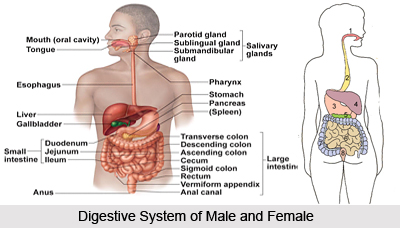 Fasting Therapy is one of the nature"s oldest, most effective and yet least expensive method of treating diseases, recognised as the achievement of natural healing. Throughout medical history, it has been regarded as one of the most dependable curative methods. It refers to complete abstinence from food for a particular period pertaining to a specific purpose.
Fasting Therapy is one of the nature"s oldest, most effective and yet least expensive method of treating diseases, recognised as the achievement of natural healing. Throughout medical history, it has been regarded as one of the most dependable curative methods. It refers to complete abstinence from food for a particular period pertaining to a specific purpose.
The common cause of all diseases is the accumulation of waste and poisonous matter in the body which results from overeating. The majority of people eats too much and follows sedentary occupations which do not permit sufficient and proper exercise for utilisation of this large quantity of food. This surplus overburdens the digestive organs and clogs up the system with impurities or poisons. Digestion and elimination become slow and the functional activity of the whole system gets deranged. By depriving the body of food for a time, the organs of elimination such as the bowels, kidneys, skin and lungs are given opportunity to expel, unhampered, the overload of accumulated waste from the system. Thus, fasting therapy is merely the process of purification and an effective and quick method of cure.
Methods of Fasting Therapy
 The best, safest and most effective method of fasting therapy is "Juice Fasting". Vitamins, minerals, enzymes and trace elements in fresh, raw vegetable and fruit juices are extremely beneficial in normalising all the body processes. They supply essential elements for the body"s own healing activity and cell regeneration and thus speeding the recovery.
The best, safest and most effective method of fasting therapy is "Juice Fasting". Vitamins, minerals, enzymes and trace elements in fresh, raw vegetable and fruit juices are extremely beneficial in normalising all the body processes. They supply essential elements for the body"s own healing activity and cell regeneration and thus speeding the recovery.
Duration of Fasting Therapy
The duration of the fast depends on the age of the patient, the nature of the disease and the amount and type of drugs previously used. The duration is important, because long periods of fasting can be dangerous if undertaken without competent professional guidance. It is, therefore, advisable to undertake a series of short fasts of 2 to 3 days and gradually increase the duration of each succeeding fast by a day or so. The period, however, should not exceed a week of total fasting at a time. A correct mode of living and a balanced diet after the fast will restore vigour and vitality to the individual.
The success of the fast depends largely on how it is broken. This is the most significant phase. The main rules for breaking the fast are no overeating, eating slowly and chewing food thoroughly; and taking several days for the gradual change to the normal diet. If the transition to eating solid foods is carefully planned, there will be no discomfort or damage. The patient should also continue to take rest during the transition period. The right food after a fast is as important and decisive for proper results as the fast itself.
Benefits of Fasting Therapy
Fasting is highly beneficial in practically all kinds of stomach and intestinal disorders and in serious conditions of the kidneys and liver. It is a miracle cure for eczema and other skin diseases. The various nervous disorders also respond favourably to this mode of treatment. Thus fasting therapy helps in the cure of a number of diseases.
Cautions for Fasting Therapy
All juices should be prepared from fresh fruit immediately before drinking. Fresh juices may be diluted with pure water. The total liquid intake should be approximately 6 to 8 glasses. Only very simple exercises like short walks may be undertaken during the fast. A warm water or neutral bath may be taken during the period. Cold baths are not advisable. Sun and air baths should be taken daily. Fasting sometimes produces a state of sleeplessness which can be overcome by a warm tub bath, keeping hot water bottles at the feet and by drinking 1 or 2 glasses of hot water.




